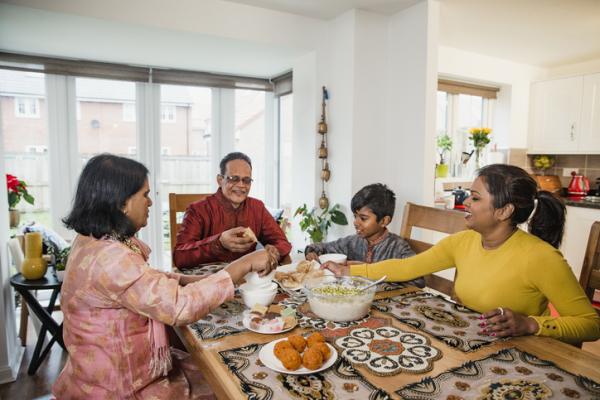Ramadan is observed by Muslims worldwide and is regarded as a blessed month, which is observed on the ninth month of the Islamic calendar. There are five basic rules in Islam which all Muslims must follow. These are known as The Five Pillars of Islam. Ramadan symbolises one of the Five Pillars and is referred to as ‘Sawm’, meaning the “Fasting during the month of Ramadan”.
At the beginning of the fasting month, Muslims will greet each other with ‘Ramadan Kareem’ or ‘Ramadan Mubarak’ as a celebratory term. The fasting month lasts for 29-30 days each year however this is not set as fixed date, such as Christmas celebrated on the 25th of December yearly. In order to observe Ramadan at the correct time, Muslims seek advice from their local Mosque who confirm the start and end date of the fasting period which is at dawn and sunset.
It is compulsory for Muslims to start fasting when they reach puberty, as long as they are healthy. Many children complete fasts to practice for later life. There are some exemptions for fasting which may include;
Advice can to taken from the local Mosque to discuss individual needs if you are unsure about your circumstances. A person who is fasting is expected to refrain from consuming all foods, liquids and abstain from smoking and sexual activity from dawn until sunset.
Ramadan is set aside as a time for reflection and increased worship. Many Muslims will visit their local Mosque more frequently, perform regular prayers, read The Quran (Holy Book) and give to charity and/or volunteer for a good cause. Ramadan is regarded as a blessed month. It helps Muslims to develop self-control, acknowledge God’s Blessings and encourages one to have greater compassion towards others, especially the deprived.

A typical routine for a person fasting includes awaking before Sunrise to eat a meal of their choice. This is known as ‘sahoor’ or ‘sehri’. The first prayer then commences after breakfast. Sunrise times differ depending on where you live in the UK and the month Ramadan falls on. This year Ramadan is in the month of May/June 2019, therefore Sunrise is at approximately 2am. Muslims tend to return back to sleep once they have prayed and eaten before sunrise, so to preserve their energy before they continue their daily routine of work / school / college etc.
Towards the end of the day a meal is prepared prior to sunset. Many friends and families arrange a gathering to break their fast together. Traditionally, once the time of sunset has arrived which is known as ‘iftar’, the first food item eaten is a date. This is also the time for the fourth prayer of the day. In total there are five prayers observed throughout the day. Many local Mosques can provide you with a timetable of sunset and sunrise times for the fasting period, which makes it easier for any person to follow. Generally, men are expected to attend the Mosque to observe these prayers. It is optional for women to attend and not all Mosques cater for female worshipers.

Once the month of fasting is complete, Eid is celebrated. Eid is a religious festival which is held on the first day following the end of Ramadan. On this day, Muslims wear their best outfits, usually traditional clothing. Muslims visit their local Mosque to observe Eid prayer, after which they will greet each other with ‘Eid Mubarak’ meaning Happy Eid. Once home the family get together to have traditional sweets and breakfast. Throughout the day many will receive visitors of close friends and relatives, gifts and share food.